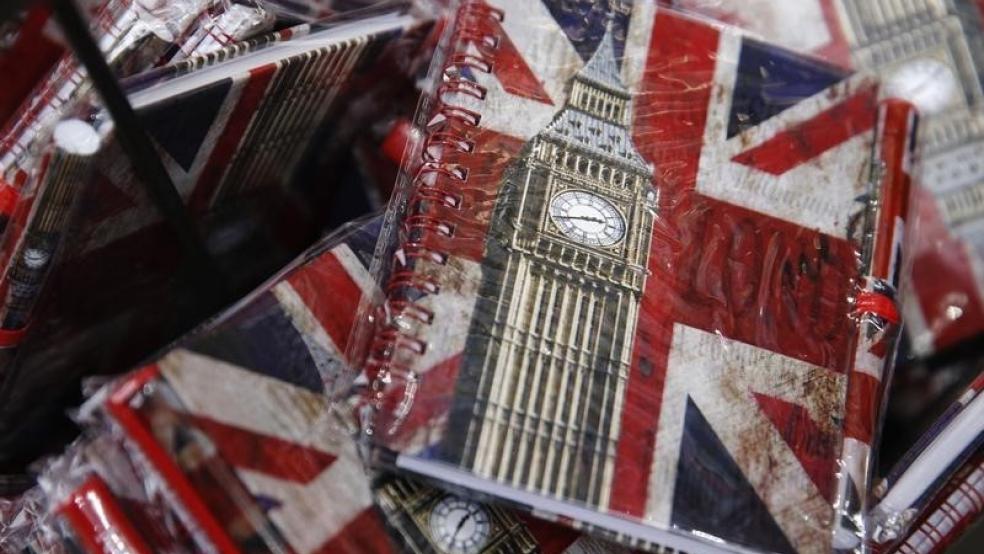Prime Minister David Cameron cut his deal with the European Union late last Friday, making Britain a nation of “Ins” and “Outs” for the next five months. Should the EU’s most powerful member remain part of the union or go its own way? British voters will give the world their answer in a referendum now set for June 23.
But it’s not the only question—or even the biggest. What’s ultimately at issue as Britons debate their future is whether the Europe we’ve come to know survives or whether the ideal of democratic unity -- first articulated nearly seven decades -- ago becomes an historical artifact of an era now passing.
Related: 'Brexit' odds shorten as London mayor Johnson supports 'out' campaign
The prospect of a “Brexit” is a global concern (never mind that no presidential contender in the US election campaigns is within a million miles of raising so important a question). A lot would change were Britain to exit the EU, and none of it would be to America’s benefit.
The EU has been in rough shape for some time, of course. The Greek crisis last year, following six years of economic austerity, divided members into advocates and enemies of the neoliberal orthodoxy long prevalent in Brussels and Frankfurt, seat of the European Central Bank.
EU leaders voted last December to extend sanctions against Russia for six more months; but Italy, France, and other nations signaled at the time that they would not go along. (The Obama administration ought to think harder about this, since it wants to see Europe remain unified.) Now the migrant crisis revives long-submerged nationalist impulses, notably but not only among newer members in Eastern Europe.
Amid all this, who would have thought Britain, pillar of conservative diplomacy and advocate par excellence of neoliberal economics, would prove the true threat to European unity? But lose the Brits, and it’s anybody’s guess whether the EU will begin to unravel. It’s a risk, certainly.
Related: London Mayor Boris to campaign for British exit from EU
While EU membership now divides Britain, the fissure in its political culture is a variant of America’s: Cameron’s Conservative government faces insurgencies from left and right, both of them fed up—for very different reasons—with the status quo between London and Brussels.
At the extremes are the nativist UK Independence Party and the left side of Labour—unlikely allies if ever there were any. But anti-European sentiment also runs straight through the middle: Over the weekend Cameron’s cabinet sprouted a “Gang of Six”—ministers openly campaigning for a Brexit—and news reports indicate opposition to the prime minister’s deal is spreading rapidly.
Fundamentally at issue is Britain’s demand for “special status” as an EU member. In the deal Cameron negotiated with EU President Donald Tusk, Britain opts out of the principle enshrined as “ever closer union.” Providing London gets backing from more than half of other members’ legislatures, a new mechanism allows it to block EU proposals.
The Tory manifesto Cameron took into his talks with Tusk also called for severe restrictions on the benefits Britain is required to extend to intra-EU migrants. On this point, Cameron returned to London over the weekend with half a loaf at best, and this is a major source of irritation in the pro-Brexit constituency.
Related: Britain's economy will be worse off if it leaves the EU: Reuters poll
The other major questions concerned deregulation—more and faster was Cameron’s position—and protection for EU members who are not part of the single-currency eurozone, especially in the case of bailouts. He did well on the first point and so-so on the second.
The British press already teems with speculation as to the direction of national sentiment. The subtlest appraisal out there now is from Philip Stephens, a Financial Times columnist whose weekend piece earned the headline, “How the Outs could win.”
“The story of modern democracies is one of an insurgency against the elites,” Stephens writes. “The Out campaign will … exploit public fears about immigration, rail against bankers and corporate ‘fat cats,’ and offer voters a chance to punish Mr. Cameron for his austerity programme…. A referendum about Europe, the Ins can win comfortably; not so one that turns on what voters feel about the state of the world.”
The state of the world is what’s at issue. A Brexit would signal decisively that the European project has passed its peak. “Now what?” will be the question.
Related: PIMCO sees 40 percent chance of 'Brexit', uncertainty to hit markets
Brexit would also deal a severe blow to Europe’s place as one of three global trading blocs (along with North America and East Asia). The EU’s geopolitical weight would inevitably decline—a clear concern in Washington.
Weekend reports indicated that European leaders were relieved that Cameron went home with a deal after concluding talks late Friday evening. But they also said the Continent has little taste for a “multi-speed” Europe—suggesting there’s no further room for compromise.
Everyone’s right to be concerned as Britain’s Outs gain traction, but no one will be blameless if they get their Brexit. As argued previously in this space, Europe has evolved into a technocratic institution at the cost of a ridiculously weak parliament in Strasbourg. This is Brussels’ fault; this is Frankfurt’s fault (and Berlin’s).
“Only a genuine social and democratic refounding of the eurozone, designed to encourage growth and employment … will be sufficient,” Thomas Piketty, the French economist recently wrote in The New York Review of Books. The same holds for the EU as a whole.






